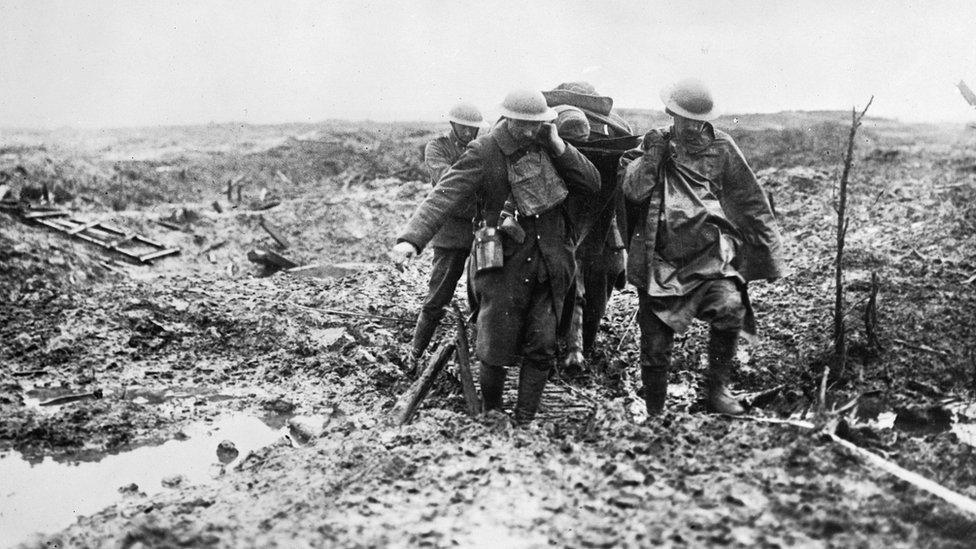Passchendaele 100: Battle's Welsh soldiers remembered
- Published
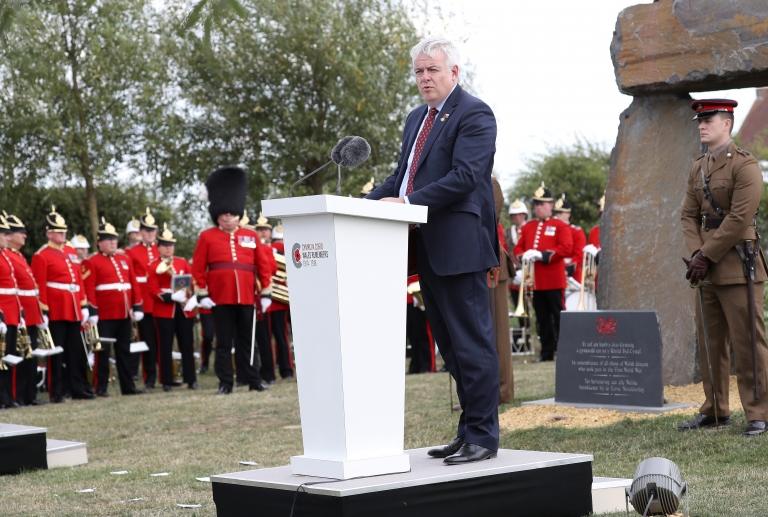
Carwyn Jones addresses the congregation at the memorial on Monday afternoon
The Prince of Wales and First Minister Carwyn Jones have joined up to 1,000 people in Flanders, Belgium, for the Welsh centenary memorial of the Battle of Passchendaele.
It was one of the bloodiest events of World War One - with 4,000 Welsh soldiers killed or injured on the first day, 31 July 1917.
Among them was Welsh poet Hedd Wyn.
The 38th (Welsh) Division played a central role in the battle, capturing key positions on the ridge at Pilckem.
By the end of the battle - also known as the Third Battle of Ypres - half a million men had died from both sides, with Allied forces having advanced just five miles (8km) in three months.
Events in and around what became known as the Ypres Salient started at dawn on Monday, as a memorial ceremony marking "Zero hour" was held at the Welsh memorial in Langemark.
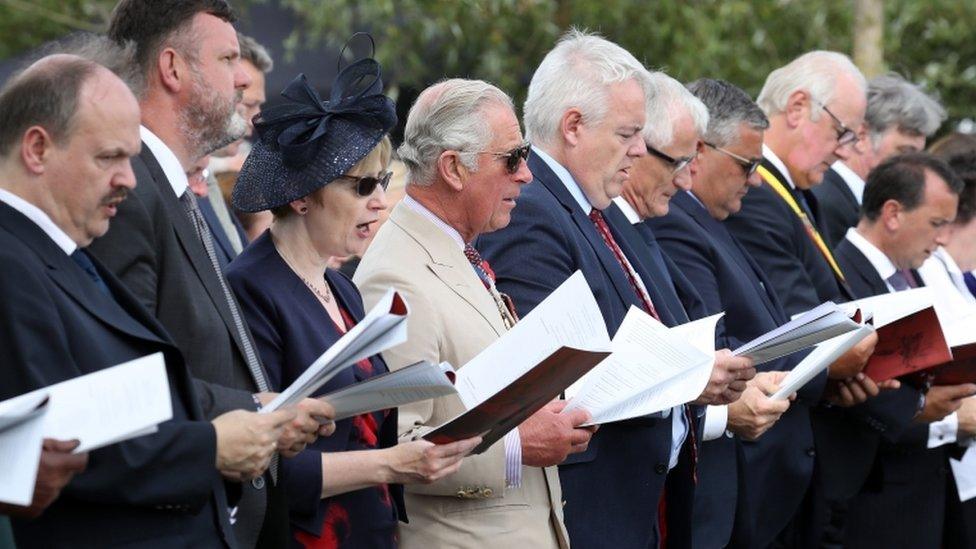
Prince Charles gave a reading during the service
Cannon fire at Battle of Passchendaele 'zero hour' service
It was where men from the 38th Division - which was made up entirely of Welsh soldiers - went over the top, with orders to capture Pilckem Ridge, the high ground held by heavily reinforced German troops.
During that assault, three Welsh Victoria Crosses were won.
But by 11:00, Hedd Wyn had died at a dressing station at Hagebos, without knowing he had won the highest prize at that year's National Eisteddfod - the chair.
A ceremony to remember him, and the Irish poet Francis Ledwidge, who was killed on the same day, was held at Artillery Wood Cemetery in Langemark on Monday morning.
Hedd Wyn's great-great nephews George and Alfie Cairns attended the service
It was followed by a UK ceremony at the Tyne Cot Cemetery near Passchendaele itself, the largest Commonwealth war grave in the world.
Prince Charles, Prince William and Prime Minister Theresa May were among those at that ceremony to pay tribute to those who died.
Prince Charles later joined the service to remember the Welsh fallen, giving a reading in English and Welsh, before laying a wreath.
Wales football manager Chris Coleman also addressed the congregation.
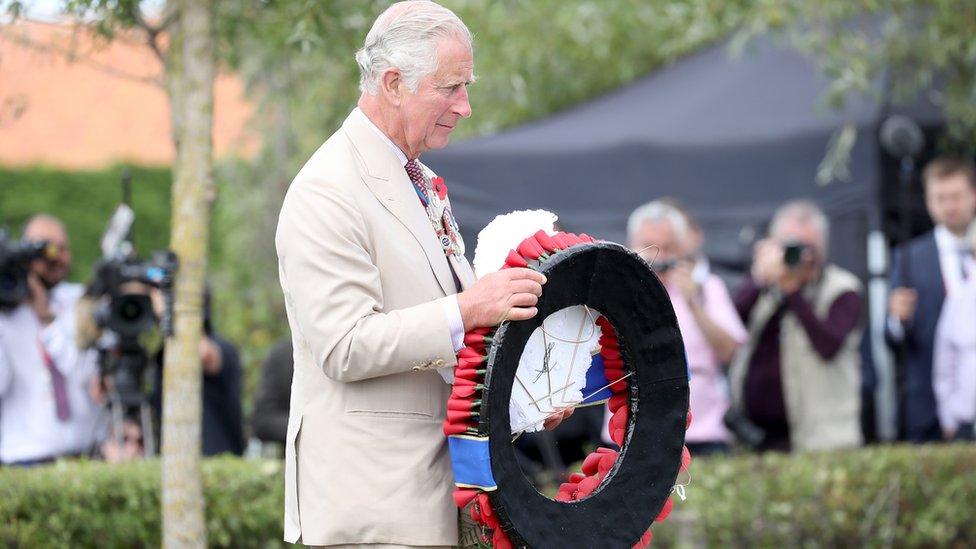
Prince Charles laid a wreath
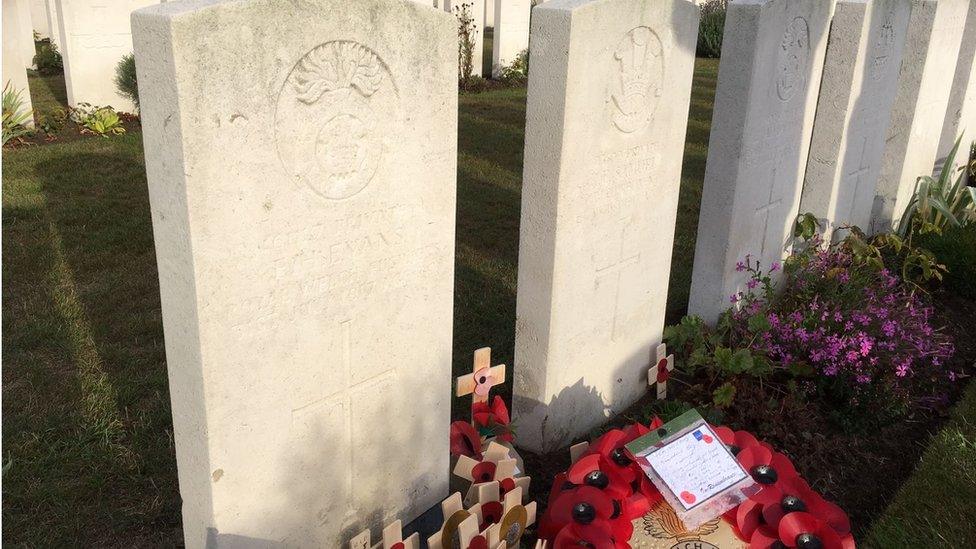
Hedd Wyn's grave
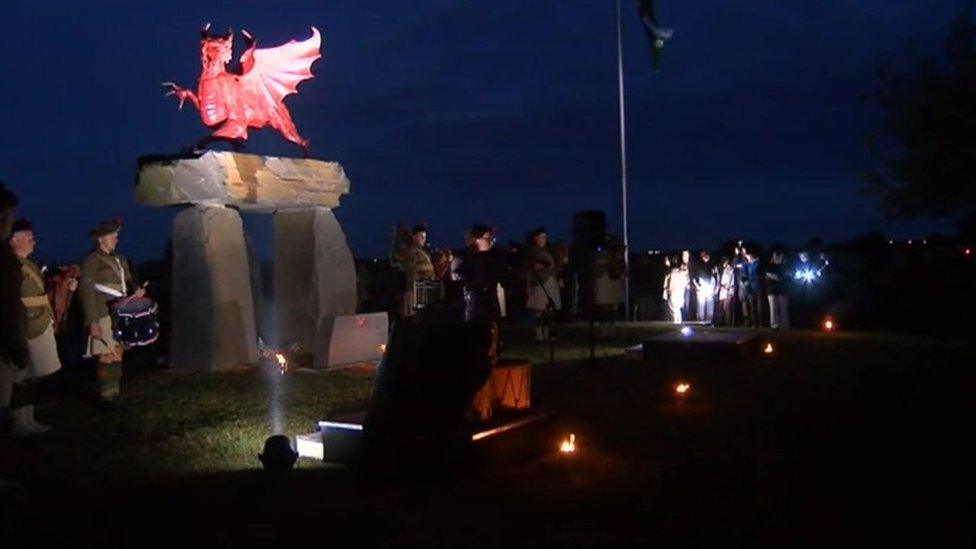
A "zero hour" ceremony was held at dawn on Monday in Langemark
Welsh Secretary Alun Cairns, and the leaders of all the Welsh political parties, as well as descendants of those who were killed, also attended the service.
The speeches and readings were delivered in front of the 9ft (2.7m) dragon sculpture, which honours the Welsh men who fought in the conflict.
Carwyn Jones said it was hard to comprehend what the battle would have been like
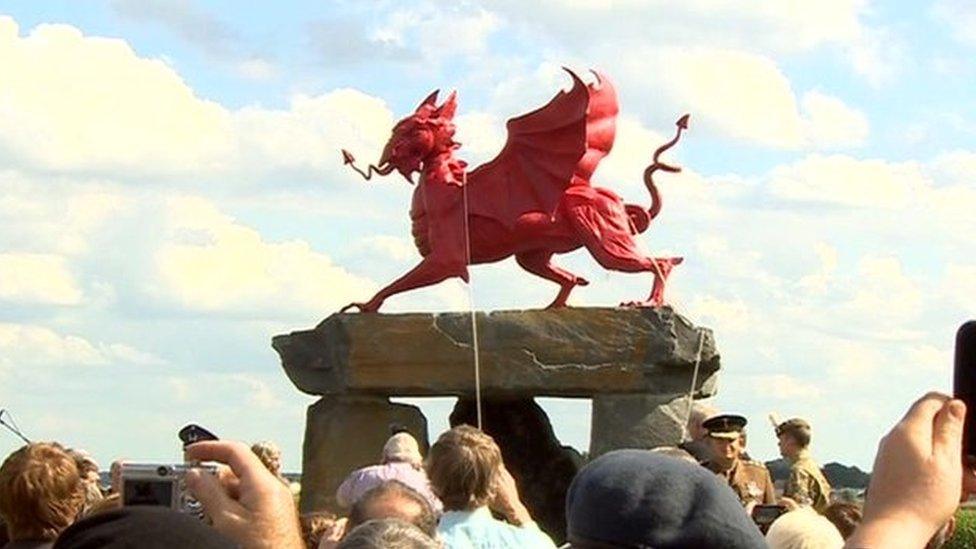
The Langemark monument was unveiled in 2014
Mr Jones said: “It is a great privilege to be back in Langemark for this important occasion.
“It has been three years since the memorial was unveiled and it offers us a fitting place to pay tribute and reflect on the sacrifices of all those who took part in the Third Battle of Ypres 100 years ago.
“In this peaceful spot today, it is hard to imagine the horrors of war faced by our soldiers and the agonising wait of families back home who might not know the fate of loved ones for many months.”
A new memorial to the fallen Welsh soldiers was blessed at the end of the service. Seven stones show the cap badges of five Welsh Regiments and two Welsh Divisions involved in the battle.
The day ended with performances from the choir, Cor Rygbi Gogledd Cymru, and Welsh singer Rhys Meirion at the Last Post ceremony at the Menin Gate in Ypres.
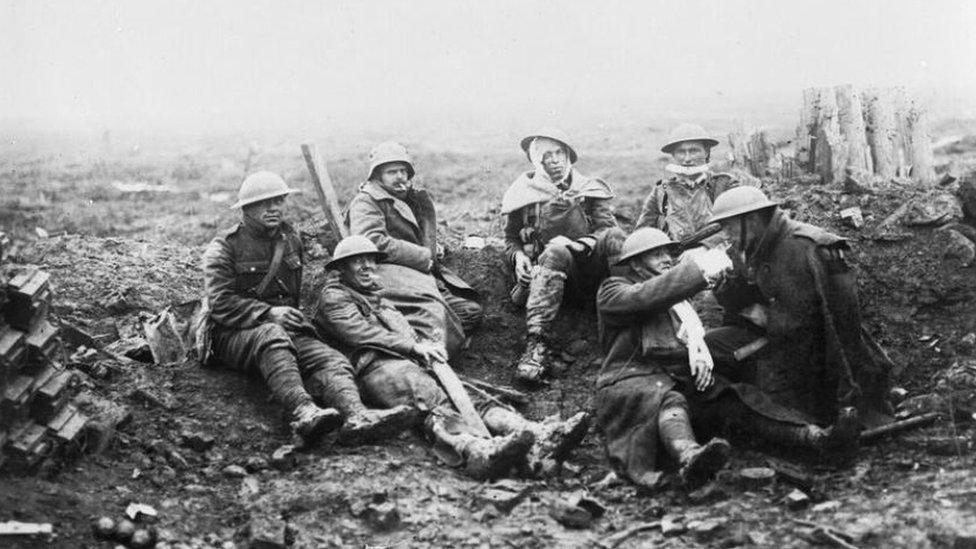
The gate records the names of another 54,395 missing and dead in the conflict who were never found.
It comes after the Duke and Duchess of Cambridge attended a service on Sunday evening, accompanied by the band of the Welsh Guards.
“When you see these 54,000 names that are carved into the wall, you realise that they couldn’t find them. It’s amazing,” said Welsh tenor Meirion.
“It is a stadium full when you think about it. It puts things in perspective and it is very difficult.”
- Published30 July 2017
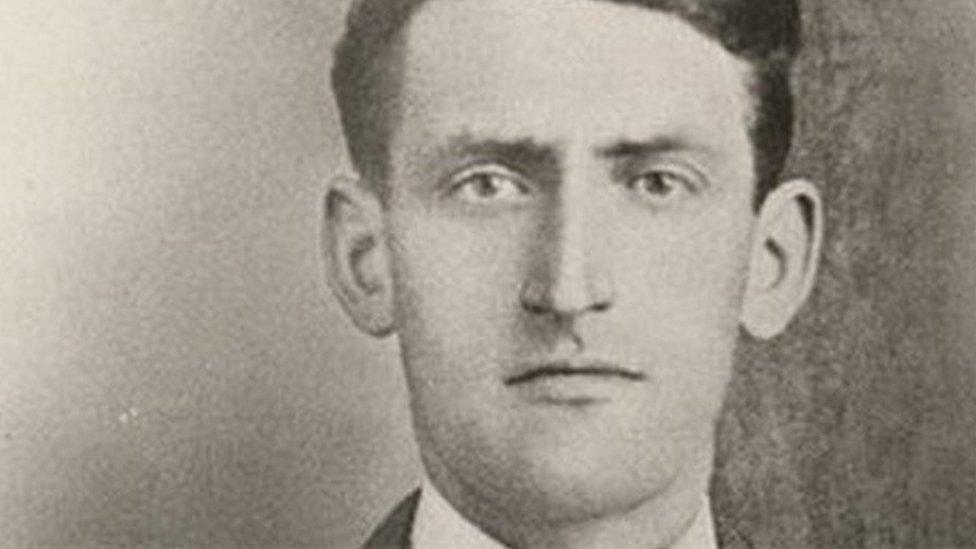
- Published30 July 2017
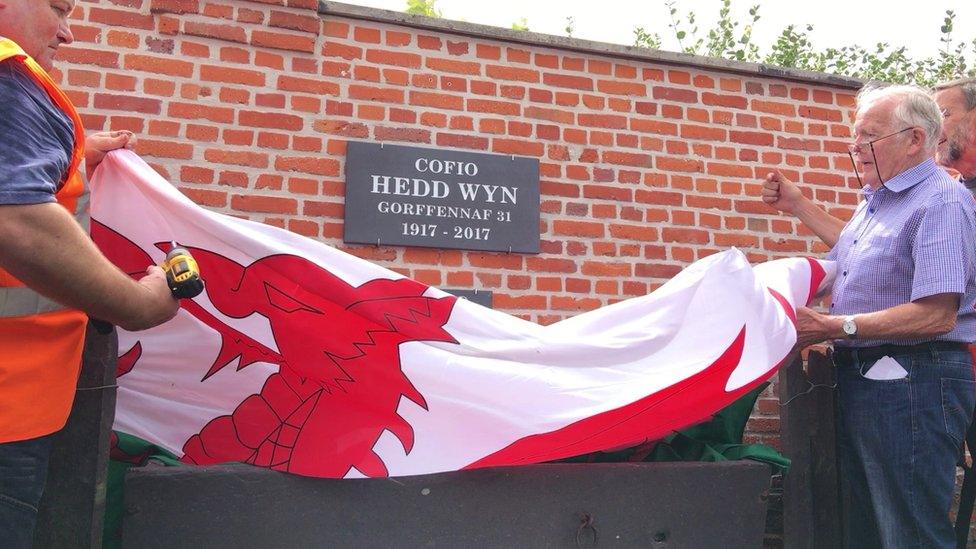
- Published30 July 2017
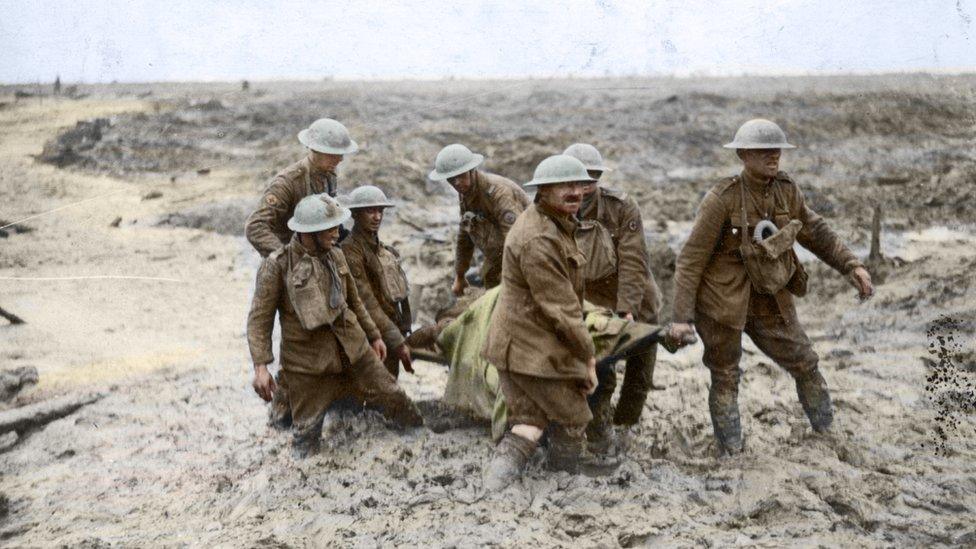
- Published16 August 2014
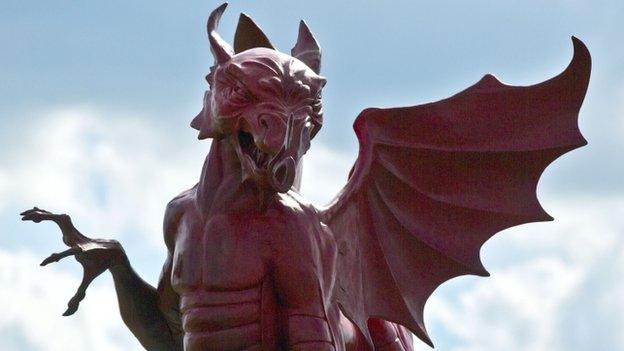
- Published29 July 2017
